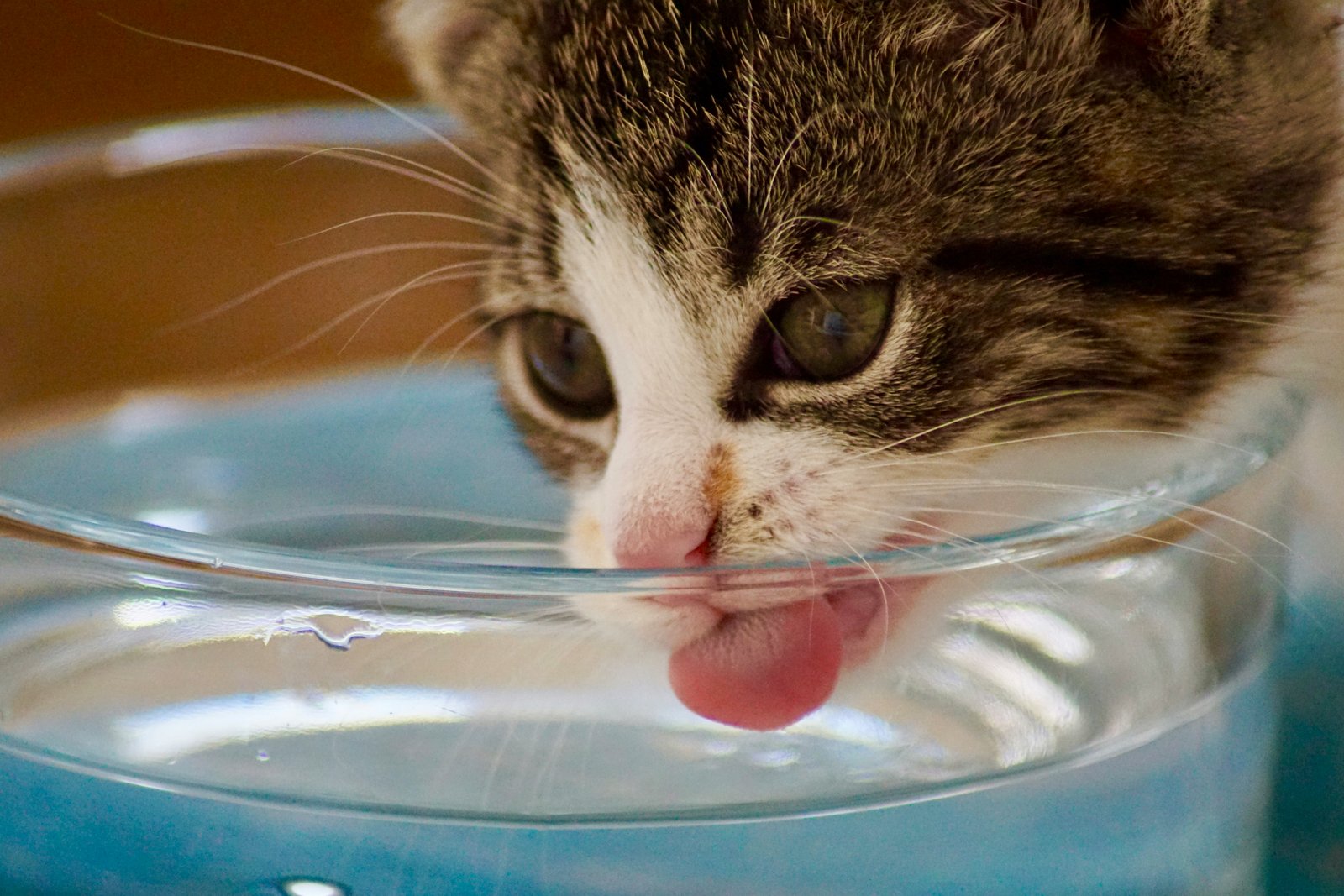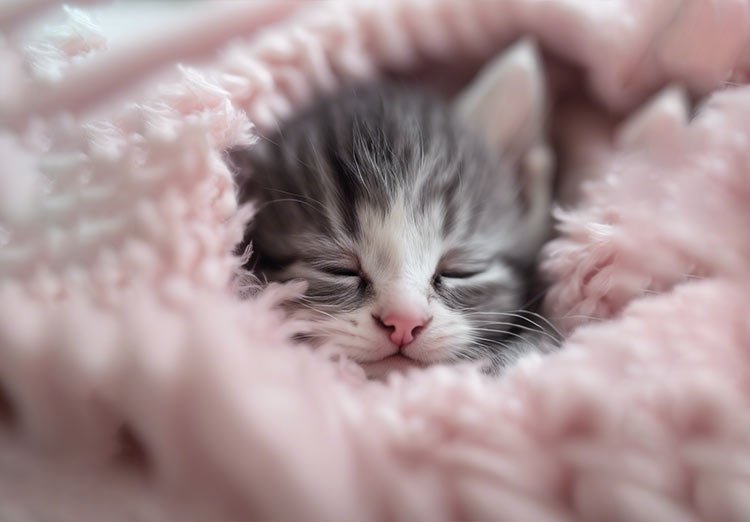Do Cats Enjoy Sharing?Cats are often seen as aloof and disinterested in socializing with other animals, including their fellow feline counterparts. But is this really the case? Do cats actually enjoy sharing their space and interacting with others?
In this blog post, we will delve into the fascinating world of cat behavior and explore whether these furry companions have a social side. From observing their interactions with other cats to understanding their territorial instincts, we will uncover the truth about cats and their propensity for sharing.
So, grab a cup of tea and join us as we embark on a journey to discover whether our feline friends truly enjoy the company of others.
1. Cat behavior and socialization
Cats are known for their independent nature, often seen as solitary creatures. However, when it comes to socialization, cats can surprise us with their ability to form connections and enjoy sharing experiences. Understanding cat behavior and socialization is key to fostering a positive and fulfilling environment for our feline friends.
Contrary to popular belief, cats are not always solitary animals. They have evolved as social beings, with the ability to form complex relationships with other cats and even humans. One important aspect of cat socialization is their territorial nature. Cats have a strong instinct to mark their territories and establish boundaries.
This behavior can sometimes lead to aggression or territorial disputes when introducing new cats into the same space.
To ensure a smooth integration and encourage positive socialization, it’s important to provide separate spaces for each cat, allowing them to establish their own territories. This can be achieved through the use of separate feeding areas, litter boxes, and comfortable resting spots.
Gradually introducing the cats to each other’s scents and allowing supervised interactions can help them build trust and familiarity.
While cats may not necessarily enjoy sharing everything, they can appreciate companionship and social interaction to varying degrees. Some cats may enjoy the company of other cats and engage in playful interactions, grooming rituals, and even sleeping together.
Others may prefer more limited socialization, seeking companionship from their human caregivers and enjoying occasional short interactions with other cats.
Understanding the unique preferences and personalities of your cats is crucial in providing them with the socialization opportunities they enjoy. It’s essential to respect their boundaries and create an environment that allows for both privacy and social interaction.
This can include providing vertical spaces, such as cat trees or shelves, where cats can retreat to when they need some alone time, as well as interactive toys and playtime to stimulate their social instincts.
2. Observing cat interactions
Observing cat interactions can be a fascinating experience. As independent and solitary creatures, cats have their own unique way of socializing. While they may not seek out constant companionship like dogs, cats do engage in social behaviors with other feline friends and even humans.
One of the most visible and common forms of cat interaction is through play. Cats, especially kittens, are known for their playful nature. They will chase, pounce, and wrestle with each other, exhibiting a form of social bonding. Through play, cats establish hierarchies, practice hunting skills, and release energy.
Another interesting aspect of cat interactions is their grooming behavior. Cats are meticulous self-groomers, but they also groom other cats as a display of affection and trust. This mutual grooming, known as allogrooming, is a way for cats to strengthen their social bonds and maintain a clean and healthy coat.
However, it’s important to note that not all cats enjoy sharing their space or interacting with other felines. Some cats are more solitary and prefer to have their own territory. They may show signs of aggression or avoidance when forced into social situations. It’s crucial to respect their boundaries and provide them with separate spaces if needed.
When it comes to human interactions, cats can be quite selective. Some cats are more outgoing and enjoy being around people, seeking attention and affection. Others may be more reserved and prefer to observe from a distance. It’s important to let cats approach and initiate contact on their terms, respecting their individual preferences.
3. Understanding territorial instincts
Cats are notorious for their independence and strong territorial instincts. They are often seen as solitary creatures that prefer to have their own space and belongings. This can lead many cat owners to wonder if their feline friends enjoy sharing or if it goes against their natural instincts.
To understand how cats perceive sharing, it’s important to delve into their territorial nature.
Cats are highly territorial animals, and they mark their territory with scent markings to establish boundaries. They have a strong desire to claim and protect their resources, including their food, water, litter box, and resting areas.
This territorial instinct is deeply ingrained in their behavior and stems from their wild ancestors.
When it comes to sharing, cats may not have the same inclination as more social animals like dogs. They may not readily accept sharing their space or belongings with other cats or even with humans. This is because they see these resources as essential for their survival and comfort.
However, it’s important to note that each cat is unique, and their willingness to share can vary. Some cats may be more open to sharing with their feline housemates or even with their human companions, especially if they have been properly socialized from an early age.
Others may be more possessive and resistant to sharing.
To promote a more harmonious sharing environment, it’s crucial to provide cats with their own designated spaces and resources. Each cat should have access to separate food and water bowls, litter boxes, and resting areas.
This helps to alleviate potential conflicts and gives each cat a sense of ownership over their belongings.
If you have multiple cats, it’s important to introduce them gradually and monitor their interactions closely. Provide enough space and resources for each cat to avoid competition and reduce the likelihood of territorial disputes.
Observing their body language and behavior can provide valuable insights into their comfort level and willingness to share.
In conclusion, while cats may not naturally enjoy sharing, their territorial instincts play a significant role in their behavior.
Understanding and respecting their need for personal space and resources is crucial for maintaining a peaceful and happy coexistence in a multi-cat household.
4. Conclusion: Do cats enjoy sharing?
After exploring the topic of whether cats enjoy sharing, it is clear that the answer may vary from cat to cat. Some cats may be more inclined to share their space, toys, and attention with other cats or even with humans. On the other hand, some cats may prefer to have their belongings and personal space to themselves.
It is essential to understand and respect each cat’s individual preferences and personality when it comes to sharing. Some cats may feel stressed or threatened when forced to share, which can lead to behavioral issues or conflicts with other cats.
However, it is also possible to foster a sense of sharing and cooperation among cats by providing separate resources and creating a positive and enriching environment.
This can include having multiple feeding and water stations, providing ample hiding spots and perches, and ensuring each cat has its own litter box.
In conclusion, while cats may have different preferences when it comes to sharing, it is crucial to consider their individual needs and create an environment that promotes their well-being. By understanding and accommodating their unique personalities, we can create a harmonious and enjoyable living space for our feline companions.




